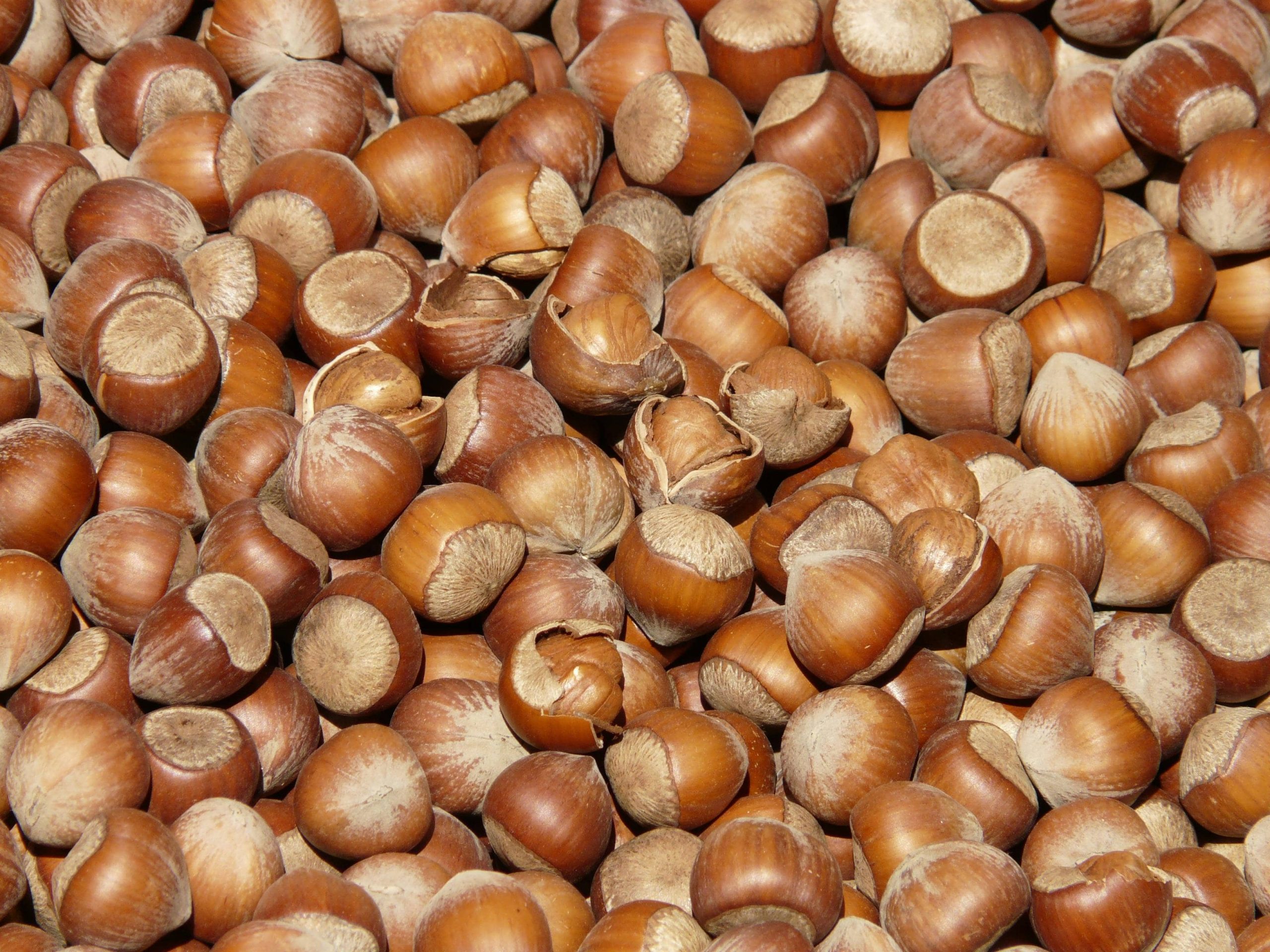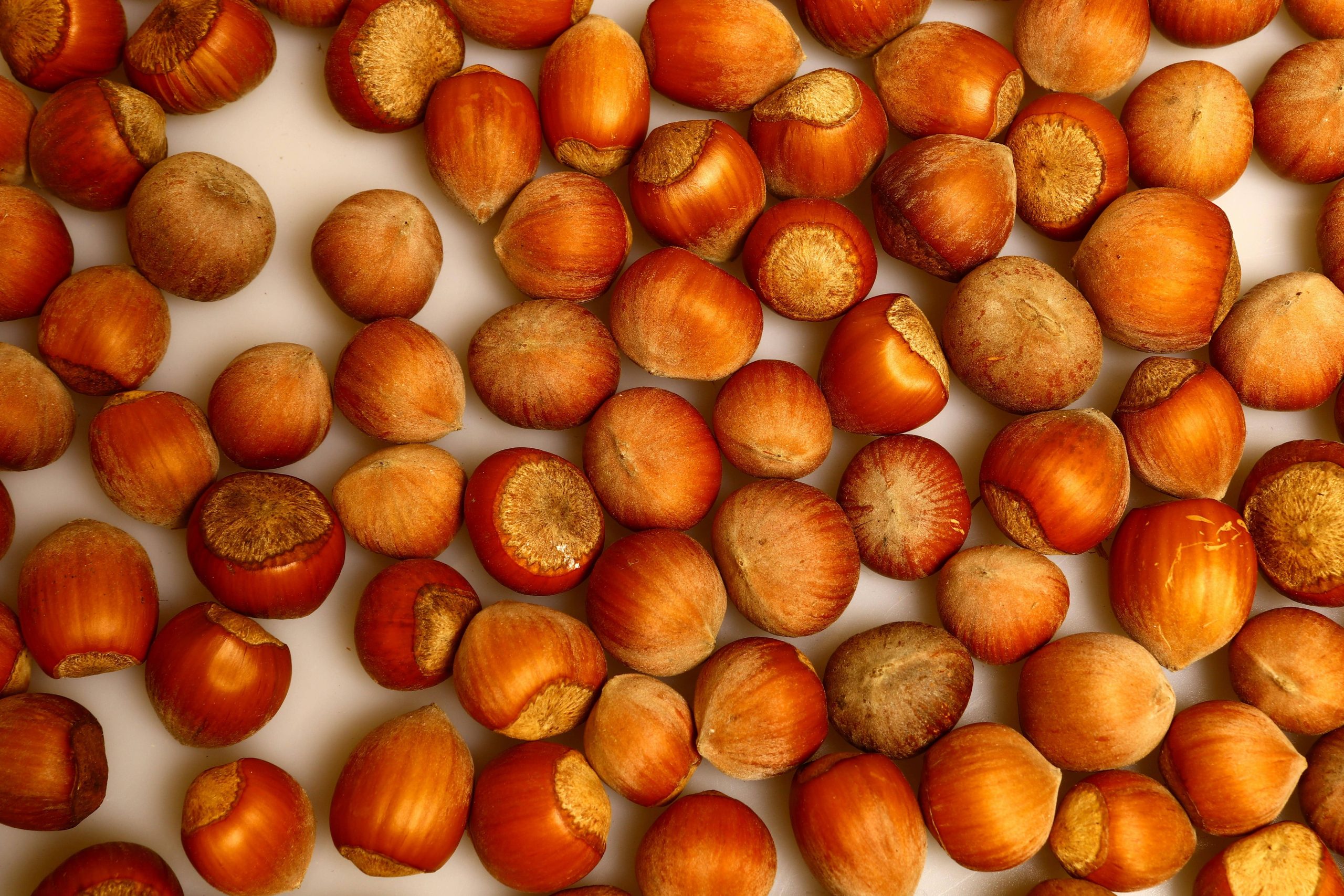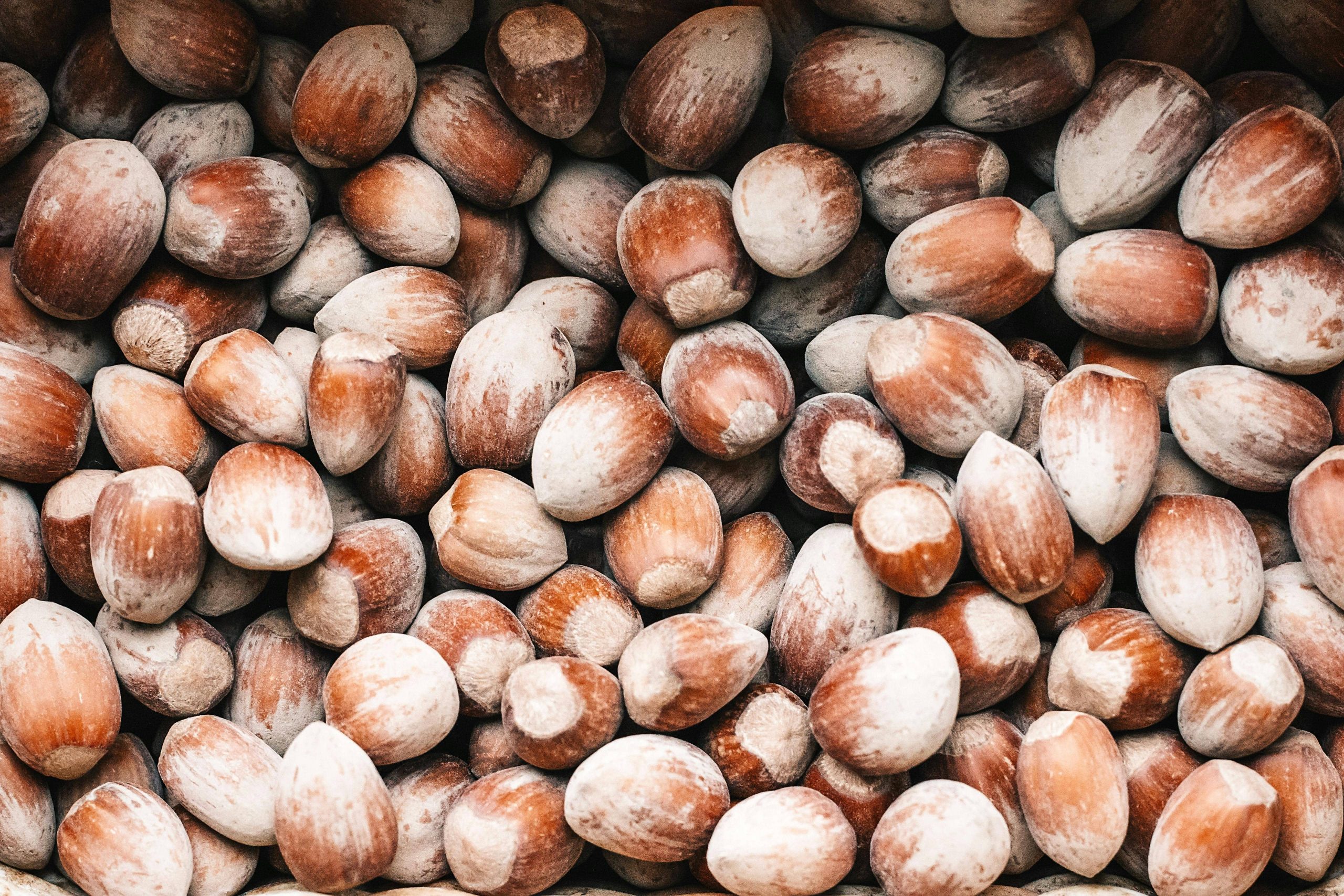What are the Advantages and Disadvantages of hazelnuts?
Hazelnuts, celebrated for their rich flavor and nutritional benefits, offer a plethora of health advantages, including promoting heart health, aiding in weight management, and providing a substantial amount of antioxidants and essential nutrients like Vitamin E, magnesium, and healthy fats. These attributes underscore these products as a valuable inclusion in a balanced diet, contributing to overall well-being and chronic disease prevention.
However, potential disadvantages such as allergenic properties, high caloric content, oxalate levels that might contribute to kidney stone formation, and possible gastrointestinal discomfort in some individuals, necessitate mindful consumption. The balance of these advantages and considerations highlights the importance of incorporating hazelnuts into the diet judiciously, ensuring that their health benefits can be enjoyed while minimizing any adverse effects.

Nutritional Profile of Hazelnuts
The nutritional profile of hazelnuts is impressively dense, brimming with essential vitamins, minerals, and beneficial fats that cater to a myriad of health advantages. Rich in Vitamin E, a potent antioxidant, hazelnuts bolster skin health and provide cellular protection against oxidative stress.
They are also a good source of B vitamins, crucial for energy metabolism, and minerals such as magnesium and calcium, which support bone health and muscle function. The high content of monounsaturated and polyunsaturated fats in hazelnuts contributes to cardiovascular health by managing cholesterol levels.
Despite these benefits, the nutritional density of hazelnuts also means they are high in calories, posing a disadvantage if not consumed in moderation, especially for individuals managing their weight. Additionally, the presence of oxalates may necessitate caution among those prone to kidney stones, framing a nutritional profile that, while largely beneficial, requires mindful consumption to mitigate potential downsides.
What are advantages and disadvantages of Hazelnuts

Advantages of hazelnuts
| Vitamin | Benefits |
|---|---|
| Vitamin E | Acts as an antioxidant, protecting cells from damage, supports immune function, and skin health. |
| Thiamin (Vitamin B1) | Essential for energy metabolism and nerve function. |
| Riboflavin (Vitamin B2) | Important for energy production, cellular function, and metabolism. |
| Niacin (Vitamin B3) | Supports digestive system, skin health, and nerve function. |
| Vitamin B6 | Involved in amino acid metabolism, red blood cell production, and the creation of neurotransmitters. |
| Folate (Vitamin B9) | Crucial for DNA synthesis and repair, red blood cell formation, and may prevent neural tube defects in pregnancy. |
Hazelnuts, with their rich nutritional profile, offer a multitude of health benefits, making them an excellent addition to a balanced diet. However, like any food, they come with considerations that are worth being mindful of. Below, we explore the advantages and potential disadvantages of integrating hazelnuts into your dietary regimen.
- Promotes Heart Health Hazelnuts are a boon for cardiovascular health, primarily due to their high content of monounsaturated fats. These fats help lower levels of harmful LDL cholesterol and maintain the flexibility of blood vessels, thereby reducing the risk of heart disease.
- Rich in Antioxidants These nuts are packed with antioxidants, including vitamin E, manganese, and phenolic compounds, which help protect against oxidative stress and inflammation. This antioxidant activity is crucial in preventing chronic diseases and maintaining overall health.
- Supports Weight Management Despite their energy density, hazelnuts can aid in weight management. The fiber and protein they contain are satiating, helping to reduce overall calorie intake by curbing hunger and promoting a feeling of fullness.
- Enhances Skin Health The vitamin E in hazelnuts not only serves as an antioxidant but also plays a role in skin health. It can help protect the skin from damage caused by ultraviolet radiation and environmental pollutants, while also preserving skin moisture and elasticity.
- Beneficial for Diabetes Hazelnuts can be part of a diabetic-friendly diet. Their low glycemic index and rich fiber content can help regulate blood sugar levels, while the healthy fats improve insulin sensitivity.
Disadvantages of hazelnuts
| Side Effect | Description |
|---|---|
| Allergic Reactions | Individuals with tree nut allergies may experience reactions ranging from mild (such as hives and itching) to severe (such as anaphylaxis). |
| High Caloric Content | Excessive consumption without balancing overall calorie intake can lead to weight gain. |
| Oxalate Content | High levels of oxalates can contribute to the formation of kidney stones in susceptible individuals. |
| Gastrointestinal Issues | Consuming large amounts of hazelnuts may lead to bloating, diarrhea, or other gastrointestinal discomfort, especially for those not used to high-fiber diets. |
- Allergic Reactions: Hazelnuts are tree nuts, which are common allergens. Individuals with tree nut allergies may experience allergic reactions ranging from mild symptoms like hives and itching to severe conditions like anaphylaxis. Those with known nut allergies should avoid hazelnuts.
- High Caloric Content: While hazelnuts are nutrient-rich, they are also high in calories. Consuming them in large amounts without adjusting total daily calorie intake can lead to weight gain. Moderation is key when incorporating them into a diet.
- Oxalate Content: Hazelnuts contain oxalates, which, in high concentrations, can contribute to the formation of kidney stones in susceptible individuals. Those with a history of kidney stones may need to limit their intake of high-oxalate foods like hazelnuts.
- Gastrointestinal Issues: Due to their high fiber content, eating large quantities of hazelnuts may lead to gastrointestinal discomfort, including bloating and diarrhea, in some individuals, especially those not accustomed to a high-fiber diet.
Culinary Uses of Hazelnuts
In the realm of culinary arts, hazelnuts are versatile. From enriching baked goods with their nutty flavor to being pressed into a delicate oil used for dressing salads, their use is widespread. The richness of hazelnut oil also finds its place in skincare, illustrating the nut’s multifaceted utility.
Selecting quality hazelnuts involves looking for fresh, unblemished nuts. Once procured, storing them in a cool, dry place or refrigerating can extend their freshness, ensuring they retain their taste and nutritional benefits.
Conclusion
Hazelnuts are a healthful addition to the diet, offering numerous benefits, including heart health support, antioxidant effects, and aiding in weight management. However, potential side effects such as allergic reactions, high caloric density, oxalate content, and possible gastrointestinal issues should be considered.
To enjoy the benefits of hazelnuts while minimizing potential disadvantages, they should be consumed in moderation as part of a varied and balanced diet. Awareness of personal health conditions, such as allergies or susceptibility to kidney stones, is crucial when incorporating hazelnuts into one’s dietary regimen.
Shahkar Company: A Commitment to Quality Dried Fruits

At the forefront of the dried fruit industry is Shahkar, a German-based company dedicated to bringing the finest dried fruits from the Middle East to the European market. Partnering with only the most reputable farmers in the region, Shahkar ensures that every dried fruit they export is of exceptional quality. Their meticulous selection process ensures that only the ripest, juiciest fruits are used, resulting in dried fruits that burst with flavor and nutritional goodness.
Shahkar’s presence extends beyond Germany, with a strategic office located in the United Arab Emirates. This strategic location allows the company to maintain close ties with its Middle Eastern partners and ensure seamless supply of the finest dried fruits to European consumers.
Discover the Difference of Shahkar
Experience the difference that Shahkar’s commitment to quality and expertise makes. Their dried fruits are a testament to the power of nature’s bounty, carefully preserved to enhance their flavor and nutritional value. With Shahkar, you can indulge in the wholesome goodness of dried fruits while knowing that you’re supporting sustainable farming practices and contributing to the preservation of traditional Middle Eastern agriculture.
call us!
Contact us to explore the boundless prospects of co-branding across a variety of premium dried fruits with us.
we cant wait to reach your call!
we also got help from these websites and sources:









